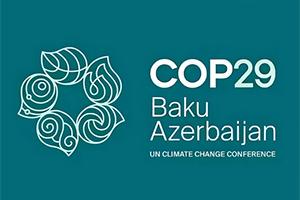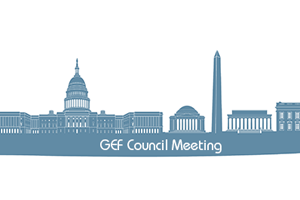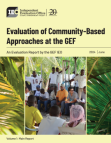The GEF report to the UNFCCC COP29 was submitted this week. A chapter based on GEF IEO evaluations, prepared by Senior Evaluation Officer Neeraj Negi with the assistance of Evaluation Analysts Mariana Calderon and Rasec Niembro, was included as part of this contribution. From July 2023 to…
IEO Contributions to the UNFCCC COP29 report
Navigating the Cofinancing Puzzle: GEF's Strategies, Successes, and Challenges

The Global Environment…
Training: Introduction to Environmental Evaluation Approaches and Tools
Are you looking to expand your evaluation skills? Have you been wanting to integrate environmental targets in your tracking of the Sustainable Development Goals? Do you wonder how to report on your project’s achievements in relation to the SDGs when it can take years to see concrete changes on…
GBFF Council Meeting 2
The IEO office did not present any documents during this council meeting.
Presentation for LDCF|SCCF Council Meeting 36
Evaluation of the GEF's Global Wildlife Program
Explore our evaluation of the Global Wildlife Program and key findings in this video. Launched by the Global Environment Facility in 2015 to combat illegal wildlife trade, the program has expanded from 21 projects across 19 countries to a broader Wildlife Conservation for Development Program…
Evaluation of Community-Based Approaches (CBA) at the GEF
Projects that use community-based approaches (CBA) at the GEF are those that are designed to use a people-centered approach for management of natural resources, characterized by participation of local communities and resource users (including indigenous people, women, youth, and marginalized or…


